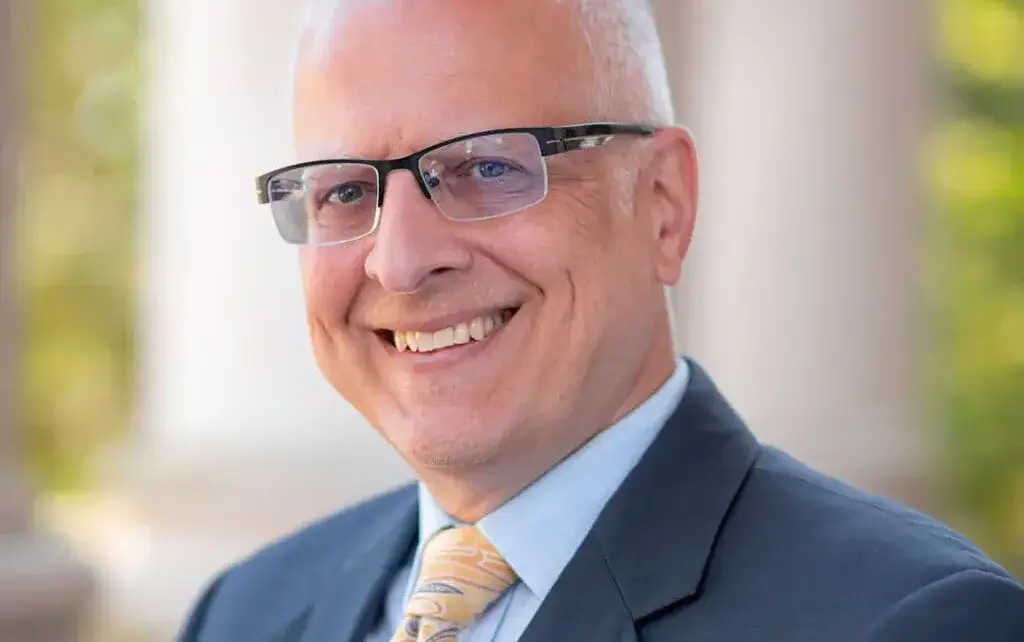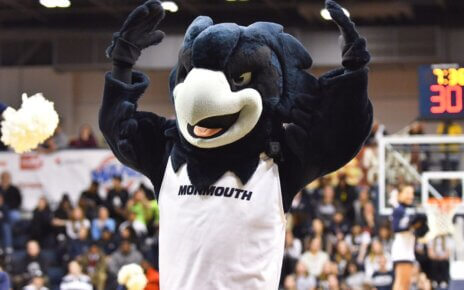The Monmouth University Polling Institute was founded in 2005 and has since been led by Director Patrick Murray. The Institute is located on the first floor of the Plangere Center. Last year, FiveThirtyEight, a nonpartisan polling database, ranked Monmouth’s Polling Institute fifth in the nation out of 589 polling centers. Why is Monmouth’s Polling Institute ranked so high? Should polls be used to predict elections? Why should students be involved with politics? I spoke with Director Murray as early and mail-in voting begins across America to get his take on the state of polling, and beliefs about the polls ahead of the 2024 election.
Q: Polls seemed to show Hillary Clinton headed for a win in 2016. In 2020, polls underestimated Republican strength. In 2022, Republicans were favored to win big, but Democrats overperformed. Should we be relying on polls to predict the outcomes of future elections?
A: “Polls don’t predict anything and as a pollster, I don’t do any predicting… my job as a pollster is to tell people what things look like in the here and now… over the last few years, we’ve had these aggregators create prediction models, and in fact, I’ve done research on how media covers the polls, and it’s all about who is going to win, and not about what issues are important for people. Then when their characterization of the race turns out to be wrong, they blame it on the pollsters. …Sometimes there are issues with polls because they have a built-in range of error, particularly when you’re doing it about something that’s happening in the future. Polls measure the here and now of a known population really well and if you stick to just doing that, the polls will be fine. But, if you try to get them to feed all these prediction models, then you’re going to end up with some errors because you are taking a chance of using a tool that’s not meant to do that.”
Q: The Institute partnered with The Washington Post to cover the 2024 presidential primaries. How did that partnership come about, and what was that like?
A: “Well, that was basically our reputation. We’re one of the first media or academic polls to start using and relying on the voter lists for developing accurate samples as well as starting to move to text-based invitations for doing surveys online in combination with our live interviewing. …We got contacted by the Washington Post which wanted to partner with us specifically because of what we were able to bring to the table.”
Q: Is there a way for students interested to get involved with our Polling Institute?
A: “Yes, there is. We always have internships available for students who are interested in learning about polling. One of the things about being at a smaller school opposed to Rutgers or the University of Michigan, which also have polling centers, is that they have a larger base of students and methodology around survey research that happens in those academic programs. We don’t have that happening in our academic programs at Monmouth all that much. So, what we try to do is bring in students from all different walks of life and all different majors and give them a place that’s actually producing things in real time for an external audience. So, we’ve had students not just from political science, but also from psychology, history, English, social work, criminal justice, and the list goes on and on, who we found different things for them to do that help them understand how this whole system works and how you can use that to further your own experiences and ideas about what you might want to do.”
Q: How long does it take to conduct an average poll?
A: “It usually takes about a week or so if you’re doing an external poll like the polls we just released, national polls on the election scene in Pennsylvania. We have an idea of the kind of questions we want to ask and we put a questionnaire together. From the time we finish the questionnaire to the time we release our data is usually seven or eight days. Now, there are some other polls that take longer to do, the ones that you don’t see which are the ones where we work with the faculty members on their research projects, there’s a lot more back and forth and background research that goes into those polls, they usually take a little longer to conduct.”
Q: Why is it important for students to get involved in politics?
A: “You tend to think that politics doesn’t affect you, and particularly, this generation has been raised in an era in which government hasn’t worked all that well. I can understand why you would think that, ‘Why should I get involved with government? There are other ways I can contribute to my community, without getting into government and politics because I’ve never seen anything producing out of it,’ and I can fully understand that. But, there was a time when people believed that government could work and that our system could make a difference for a significant number of people. The only way we get back to that is if more people participate. You have to be able to see that what you believe matters and that they can make a difference. But, you’ve also got to be able to accept that things aren’t going to change overnight. Government, when it works best, works slowly.”
Q: How do you think polling impacts how people think or behave on Election Day?
A: “That’s something I think we have to be very careful about. My feeling has always been if I can’t tell an accurate story from the polling data about what the state of an election is, or what the state of public opinion is on particular policy issues, then I’m not doing my job right and there’s no reason to do polling – doesn’t mean you have to be absolutely on the money when you are saying somebody’s ahead or behind by a couple of points, but the underlying story has to be accurate. Is it a close election? Is it an election where somebody’s running away with it and if so, why? Can you explain those things? If it’s an election where you’re not sure that there’s a range of things that could happen because you’re seeing countervailing factors playing out in the electorate, then you have to be able to tell that story as well.”



